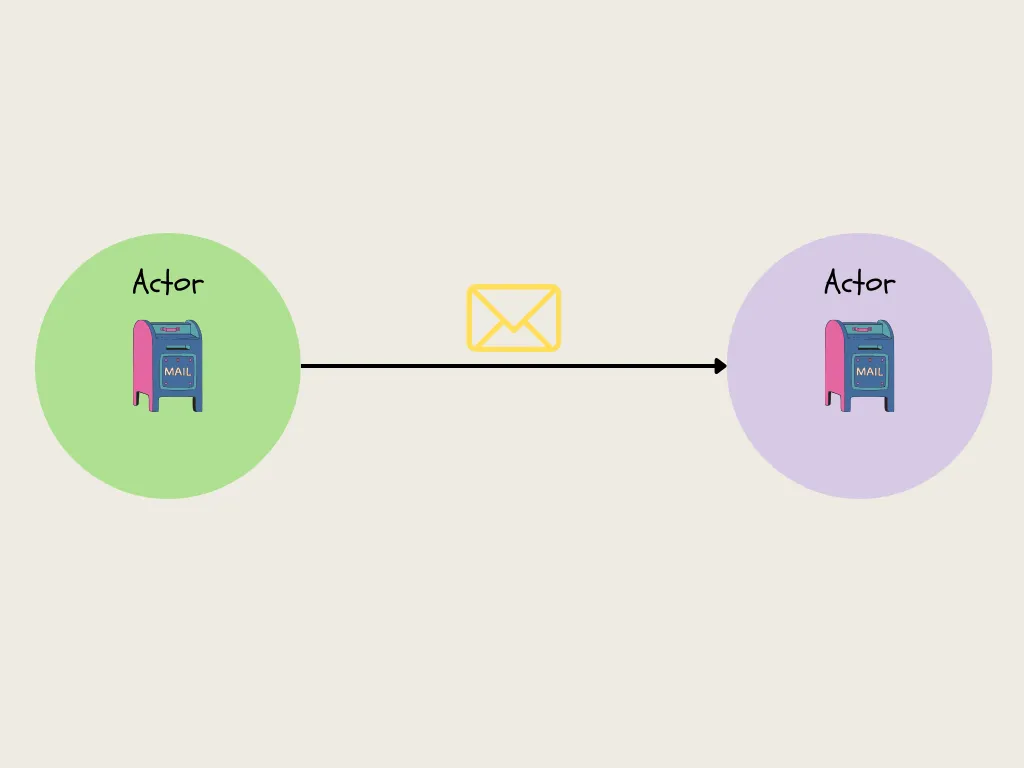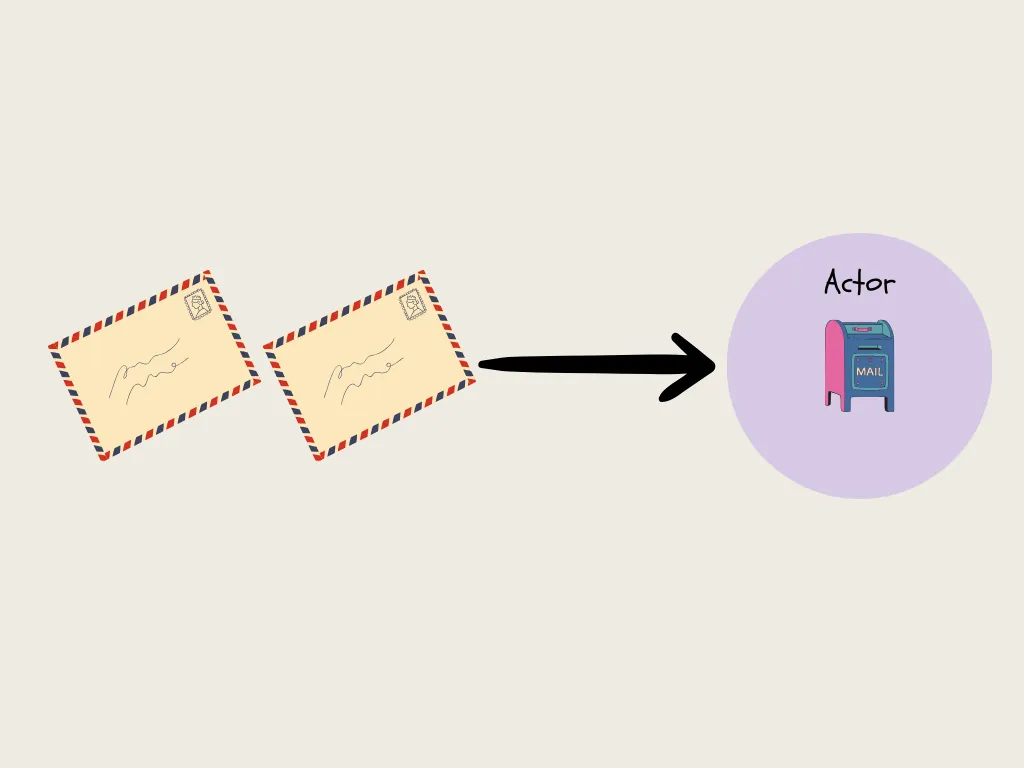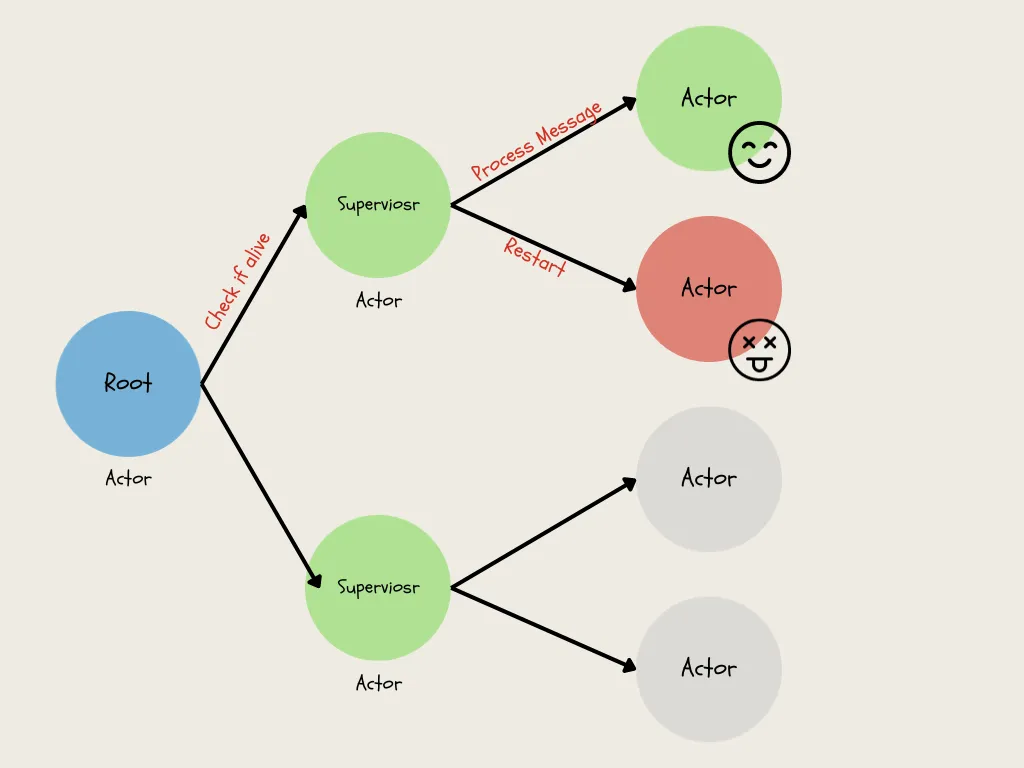“PayPal如何仅用8台虚拟机扩展至每日处理数十亿交易?”看到这篇文章的时候,被这一惊人壮举给震撼,现在一起看看具体的实践历程。
虽然他们解决了可扩展性,但是也带来了一些新的问题:
爆炸性增长带来的问题
采用Actor模型




package mainimport ( "fmt" "sync")// Actor represents an actor with its own state and a channel for receiving messages.type Actor struct { state int mailbox chan int}// NewActor creates a new actor with an initial state.func NewActor(initialState int) *Actor { return &Actor{ state: initialState, mailbox: make(chan int), }}// ProcessMessage processes a message by updating the actor's state.func (a *Actor) ProcessMessage(message int) { fmt.Printf("Actor %d processing message: %d\n", a.state, message) a.state += message}// Run simulates the actor's runtime by continuously processing messages from the mailbox.func (a *Actor) Run(wg *sync.WaitGroup) { defer wg.Done() for { message := <-a.mailbox a.ProcessMessage(message) }}// System represents the actor system managing multiple actors.type System struct { actors []*Actor}// NewSystem creates a new actor system with a given number of actors.func NewSystem(numActors int) *System { system := &System{} for i := 1; i <= numActors; i++ { actor := NewActor(i) system.actors = append(system.actors, actor) go actor.Run(nil) } return system}// SendMessage sends a message to a randomly selected actor in the system.func (s *System) SendMessage(message int) { actorIndex := message % len(s.actors) s.actors[actorIndex].mailbox <- message}func main() { // Create an actor system with 3 actors. actorSystem := NewSystem(3) // Send messages to the actors concurrently. var wg sync.WaitGroup for i := 1; i <= 5; i++ { wg.Add(1) go func(message int) { defer wg.Done() actorSystem.SendMessage(message) }(i) } // Wait for all messages to be processed. wg.Wait()}Actor 3 processing message: 5Actor 8 processing message: 2Actor 1 processing message: 3Actor 2 processing message: 1Actor 3 processing message: 4
结语
如果字段的最大可能长度超过255字节,那么长度值可能…
只能说作者太用心了,优秀
感谢详解
一般干个7-8年(即30岁左右),能做到年入40w-50w;有…
230721